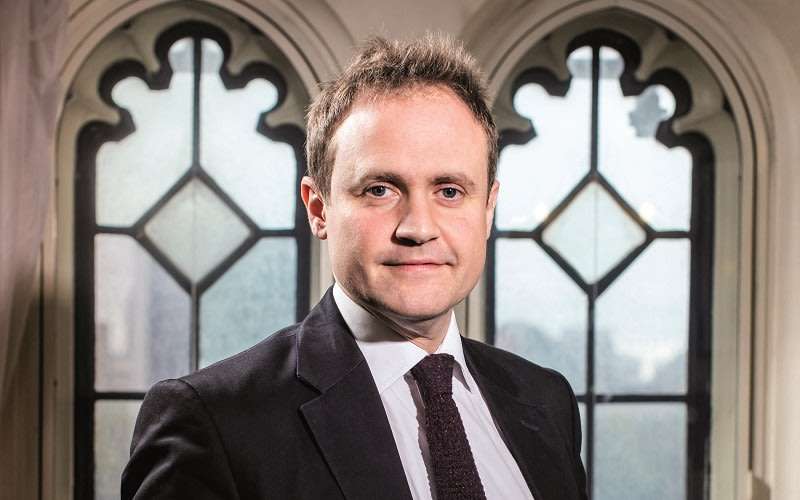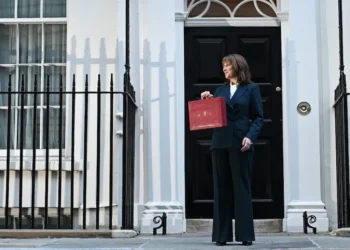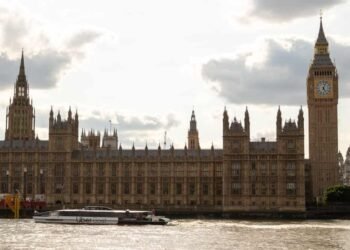Prime Minister Keir Starmer has defended his government’s strategy of engaging with China following revelations about an alleged Chinese spy who cultivated ties with Prince Andrew.
Despite calls from MPs to toughen his stance on Beijing, Starmer maintained that dialogue remains critical to addressing both challenges and opportunities presented by China.
Starmer avoided commenting directly on the royal family or Prince Andrew, citing governmental convention. However, he emphasized the importance of strategic engagement with Beijing.
“I had a meeting with the [Chinese] president just a few weeks ago,” Starmer said, referencing his recent encounter with President Xi Jinping at the G20 summit in Rio. It marked the first meeting between British and Chinese leaders in six years.
“Our approach is one of engagement, of cooperating where we need to cooperate, particularly for example on issues like climate change, to challenge where we must and where we should, particularly on issues like human rights, and to compete when it comes to trade.”
The alleged spy, identified in court documents only as H6, reportedly established a close connection with Prince Andrew, even gaining authorization to act on the prince’s behalf in an international financial initiative.
A judge upheld the businessman’s exclusion from the UK, stating he had “won a significant degree, one could say an unusual degree, of trust from a senior member of the royal family.”
The case has reignited calls for stricter measures against foreign influence, particularly regarding Beijing’s activities in the UK. Ministers are facing growing pressure to accelerate the implementation of the delayed Foreign Influence Registration Scheme (FIRS) and consider elevating China to an enhanced threat category.
Starmer assured progress on the scheme but refrained from providing a detailed timeline. “We’ve been working on it from day one in government, and there will be an update coming shortly,” he said.
Conservative MPs critical of Beijing’s influence campaigns have expressed alarm over the extent of the issue. Former Tory leader Iain Duncan Smith described the Andrew case as “the tip of the iceberg” in China’s broader efforts to infiltrate influential circles in the UK.
“There are many more doing the job that he’s been doing,” Duncan Smith said, noting that the spy’s departure suggested he realized he was at risk of exposure. “China is a very clear threat.”
Former Security Minister Tom Tugendhat echoed these concerns, warning that Beijing’s United Front Work Department is likely still active in targeting key sectors, including journalism, academia, and politics. “This is really the tip of the iceberg,” Tugendhat said “The story … is about the way the Chinese Communist Party is seeking to exert influence here in the United Kingdom.”

Balancing Engagement and Security
Starmer argued that engagement with China allows the UK to address critical global issues, such as climate change while maintaining the ability to challenge Beijing on human rights and security threats. “It’s important to engage,” he reiterated. “It’s better to engage to challenge than to stay aside … I’m very pleased with the engagement and the progress that we’ve made.”
Meanwhile, Chancellor Rachel Reeves is expected to visit Beijing soon, signaling continued efforts to recalibrate UK-China relations.
Critics, however, remain skeptical about the risks posed by such openness, particularly in light of the espionage allegations. MPs have called for a parliamentary debate, with some speculating that the alleged spy’s identity could be revealed if Speaker Lindsay Hoyle grants an urgent question on the matter.
As the UK navigates its relationship with Beijing, Starmer’s government faces the delicate task of balancing strategic cooperation with the need to safeguard national security and counter foreign interference.
READ ALSO: CETAG Alarms Over Unpaid Arbitration Awards, Threatens Action























